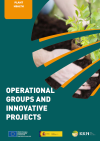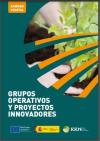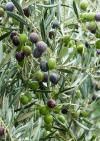Media library
Documentary, graphic and/or audiovisual knowledge objects are offered here, offering information on various sectors and topics. Use the keyword search or search filters to access current audiovisual and documentary knowledge objects useful for your implementation.
If you have any questions or suggestions, please contact us here.
Olive fly (Bactrocera oleae) treatment notice
The olive fruit fly population is beginning to increase this year, so an initial bait treatment is recommended. Once the first pitted olives appear, the next generation of adults will emerge approximately 25 days later, and a second bait treatment is required to control them.
Monitoring the olive fruit fly (Bactrocera oleae)
Field Pest Situation Report, 2024 Campaign, Week 43: October 21-October 27
Phytosanitary bulletin of notices and information
Pollinating insects are vitally important for the proper functioning of crops. Pollination is essential to ensuring the quantity and quality of crops and food production, directly linking wild ecosystems with agricultural production systems.
“Xylella fastidiosa Conference.” Diseases caused by Xylella fastidiosa and its status worldwide.
On February 12, 2019, a "Seminar on Xylella fastidiosa" was held in the Assembly Hall of the Ministry of Agriculture, Fisheries, and Food. This seminar is part of the measures adopted by the Ministry to disseminate information and raise awareness about the fight against and control of Xylella fastidiosa.
Poster on Xylella fastidiosa in the Balearic Islands
Xylella fastidiosa (Wells et al.) is a quarantine phytopathogenic bacterium that has a very wide range of host plants (more than 300 plant species), and can cause serious damage to the most important crops of the Balearic Islands, such as almond, vine, olive, citrus or fig trees, and to numerous species of ornamental plants (rosemary, lavender, polygala and acacia, among others).
Program of actions to transpose the National Contingency Plan for Xylella fastidiosa in the Autonomous Community of Extremadura
Xylella fastidiosa is a bacterium that causes rapid and widespread decline in plants. In the most severe cases, the leaves and branches may dry up and, ultimately, the entire plant may die. In many host species, the presence of the bacteria does not produce any symptoms, making detection extremely difficult. X.
Xylella fastidiosa contingency plan, national program for the implementation of phytosanitary regulations.
This document sets out the measures to be taken against the bacterium Xylella fastidiosa, a priority Union quarantine pest, with the aim of preventing its emergence and, if it does appear, acting quickly and effectively, determining its distribution and implementing eradication measures.
Phytosanitary alert and information network, field protocol for crop monitoring: olive groves
Field manual for estimating the risk of damage caused by pests and diseases in olive cultivation.

Plant Health. Operational Groups And Innovative Project
English translation of a compilation of projects developed through regional and national Rural Development Programmes, operational groups and innovative projects that are working on agricultural plant health issues.

Plant Health. Operational Groups and Innovative Projects
This publication is a compilation of Operational Groups and Innovative Projects in the field of plant health in Spain and Europe.
Dossier of supra-autonomous innovation projects
Inventory of innovative projects implemented by supra-regional operational groups of the European Innovation Partnership for agricultural productivity and sustainability of the National Rural Development Programme (PNDR) 2014-2022, submeasure 16.2.
Grups operatius a Catalunya. Call 2018 (Catalan)
The Technical Dossier no. 123: “Grups operatius a Catalunya. Call 2018” is dedicated to the Groups Operatius developed within the framework of the CAP Strategic Plan (PEPAC 2023-2027), and includes the Agricultural Knowledge and Innovation Systems, also linked to AKIS (Agricultural Knowledge and Innovation System).
Operational Groups in Catalonia. Call for 2018
"Technical Dossier No. 123: “Operational groups in Catalonia. Call 2018” is dedicated to the Operational Groups developed within the framework of the CAP Strategic Plan (PEPAC 2023-2027), and taking into account the Agricultural Knowledge and Innovation Systems, also known as AKIS (Agricultural Knowledge and Innovation System).
Report on Spanish supra-autonomous EIP-AGRI projects 2017-2022
The report summarizes the first funding period (2014-2022) of the European Innovation Partnership for Agricultural Productivity and Sustainability (EIP-Agri) operational groups, implemented at supra-autonomous level in Spain.

Olive Health Operational Group - Development of innovative strategies for the control of endemic and emerging diseases in olive trees in Spain
Development of innovative strategies for the control of endemic and emerging diseases in olive trees to improve the economic results and sustainability of olive farms and derived industries.

Validation and safety of aerial drone applications in the agroforestry environment (PHYTODRON)
Validation of the use of drones as a safe and effective alternative in comparison to applications with conventional phytosanitary products (rigorous analysis of risks, scenarios, applications and equipment).



